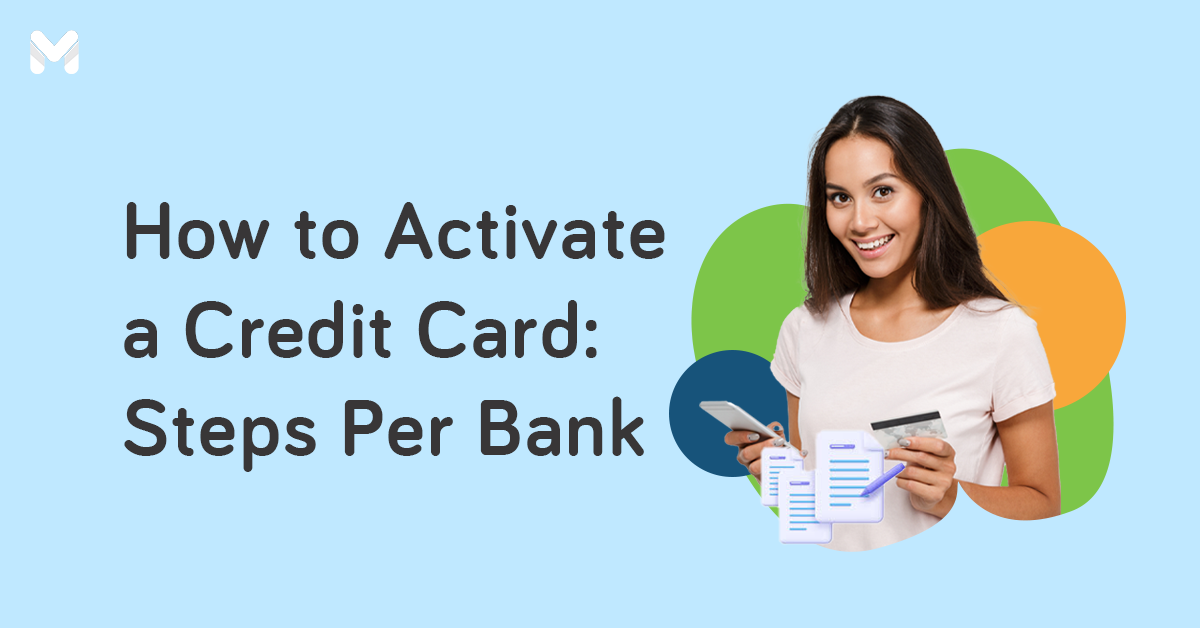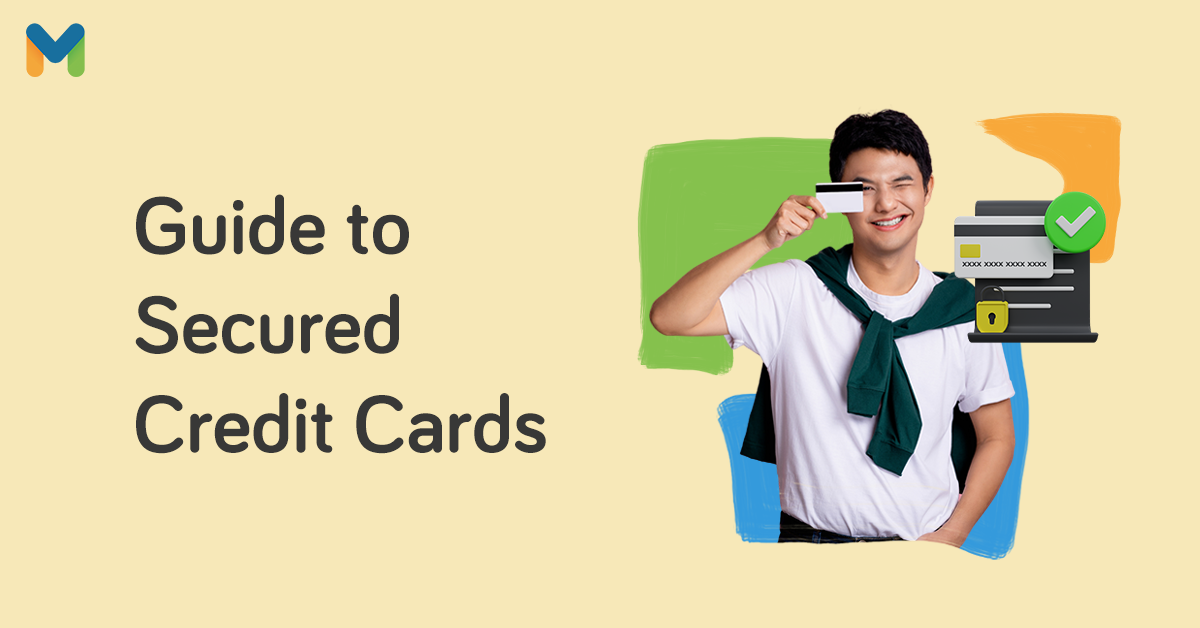Owning a credit card can make some people feel empowered. After all, everyone lives in a virtually cashless world where a high credit limit is prized.
But you must realize that your credit card is a double-edged sword. Use it right, and you’ll enjoy its convenience and be able to track your expenses. Abuse it, and you’ll experience an overwhelming amount of stress brought about by massive debts.
The first step to building good credit card habits is knowing that having a card doesn’t mean instant free cash. The money you spend using this card is just a loan that you have to pay back eventually. While this is basic information, a lot of people seem not to acknowledge it.
We’ve come up with a list of credit card dos and don’ts, so you'll remember to use your card properly. Here’s what you should do and not do with a credit card.
Credit Card Dos and Don’ts in the Philippines: 24 Rules to Remember
The Dos of Using a Credit Card
✔️ Read the Terms and Conditions carefully.
Before you use your new card for the first time, take time to read carefully the issuing bank’s Terms and Conditions that contain the rules of using the credit card. Make sure to understand them to avoid problems with your credit card later on.
Pay close attention to these details in your credit card’s terms and conditions:
- The credit card fees and interest charges
- Length of grace period
- How finance charges are computed
- How to qualify for credit card promos and rewards
- Rules on the rewards program (e.g., types of transactions that qualify for rewards, amount of rewards earned on purchases, and the minimum amount that can be redeemed)
✔️ Think Twice Before Spending with Your Card
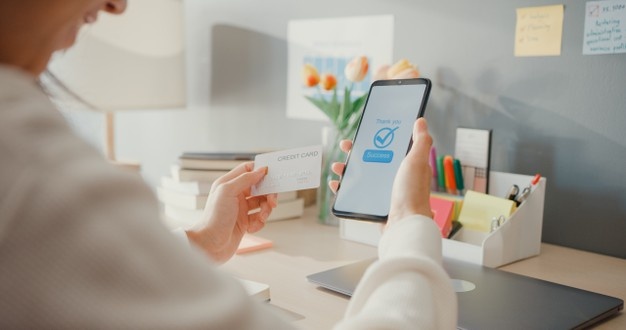
The act of swiping the card and signing the receipt can, for some people, feel more bearable than having to part with their hard-earned cash. Thus, people find it easier to spend more on their credit cards than they would with cash.
Here are the best rules to keep in mind, so you can curb the urge to overspend with your card:
- Give yourself 48 hours to decide. When you’re about to use a credit card to purchase something, wait 48 hours. This will let you deliberate on whether you actually need it.
- “Budget” your credit card. Every time you pay with a credit card, ask yourself: “Can I pay for this in cash?” If the answer is no, don’t proceed with the purchase, though the rule might be bent for paying on layaway.
✔️ Spend Only What You Can Afford to Pay Off Monthly
Using credit cards properly takes a lot of discipline and the right mindset.
Credit cards are not unlimited sources of funds. Each time you use your card, you’re essentially borrowing money from the bank—an amount you have not earned yet. If you spend with your card more than you can afford to pay each month, you will be in trouble.
Here are the practical ways to avoid credit card overspending:
- Make a list of all your expenses for each month.
- Set a strict budget based on your list of expenses and the maximum amount you are going to spend using your card.
- Use your card for purchases and payments you regularly make such as groceries, utility bills, and gas. You may earn rebates or rewards for such transactions, depending on your credit card type.
✔️ Check Your Card and Sales Slip After Every Purchase
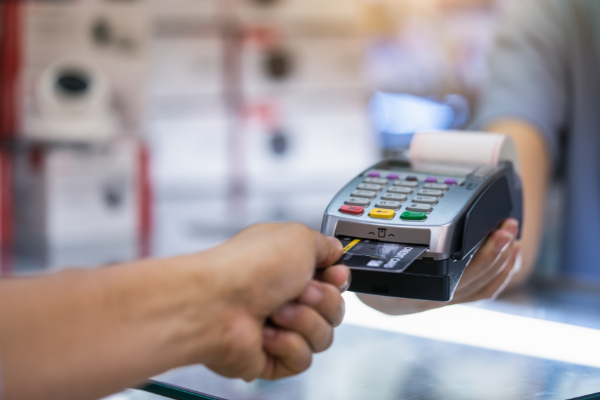
Keep a careful watch over your credit card to avoid any error in the transaction.
If the cashier will swipe your card twice, ask for proof that the transaction (the first swipe) is canceled. Always check all the details on the sales slip before signing it. Make sure that the amount indicated on the slip matches the actual amount of your purchase. Never sign a blank slip.
As soon as the cashier returns your card to you, check it to make sure it's yours and not tampered with.
✔️ Pay Your Credit Card Bills on Time
Missing or delaying payments is another no-no when it comes to using credit cards. On top of the finance charge, you will also be slapped with a late payment fee each time you pay your balance after the due date. In the Philippines, late payment fees can go as high as ₱1,500.
Aside from avoiding late fees, paying your monthly balances on or before the due date helps you improve your credit history and keep your monthly credit card payments low.
So always make sure that you pay on time. Otherwise, you’ll find yourself covering late payment charges and other penalties. With that, you should know all your due dates.
To avoid missing payments, set up your credit card’s auto-payment feature. But if you want to pay manually every month, just set up a bill payment reminder.
In case you’re using multiple credit cards, consider consolidating your debts via a balance transfer. This works by transferring all your other credit cards’ balances to one credit card. That way, you’ll have only one due date to remember. However, make sure that the credit card receiving all the balances has a lower interest rate and processing fees, so you can save money.
✔️ Pay Your Monthly Bills in Full
Many Filipino credit card users fall into the debt trap because of one costly mistake: making only the minimum payment. If you do that, you will end up shelling out more money to pay the interest.
Credit cards are among the most expensive forms of debt, with monthly interest rates of up to 2%. Banks also charge at a compounding interesting rate. This means if you often carry over balances, you are charged interest not just on the amount you owe but also on your interest.
The only way to enjoy your credit card rewards and avoid finance charges is to always pay the total amount due in full by the due date. Ignore the minimum amount due and pretend as if it does not exist.
✔️ Monitor Your Credit Card Transactions—Always!
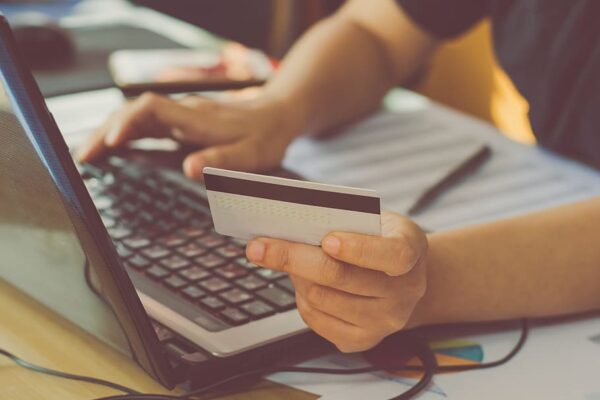
Responsible credit card users check their card activity at least once a week. It takes only a couple of minutes to monitor the transactions made using your credit card. That way, you ensure that you spend within your budget, do not exceed your credit limit, avoid penalty fees, and have no unauthorized transactions charged to your card.
Here are the easy ways to monitor your credit card transactions:
- Set up an online banking account with your bank. This allows you to review your expenses using the bank’s website or mobile app.
- Subscribe to email or mobile alerts that prompt you each time your card is used.
- Keep all your credit card receipts and a running total of your expenses.
By doing so, you’ll spot any signs of fraud. Checking your credit card balance will also inform you about the changes in your interest rate and other fees.
✔️ Read Your Credit Card Statements Thoroughly
Each time your billing statement arrives, do not just look at the minimum amount due, outstanding balance, and the due date. The statement contains other details that you must keep an eye out for, such as each transaction detail.
Review all your credit card transactions listed on your billing statement and ensure the following:
- The amounts for all purchases are correct.
- Your last payment, rebates, and other credits were applied properly.
- There are no errors and unauthorized charges on your card.
If you spot any unauthorized transaction on your credit card statement, report it immediately to your credit card provider.
✔️ Get Another Credit Card Only When You’re Financially Healthy
If used correctly, a credit card is your door to a life of efficient financial management. With that, you should apply for a credit card only when you’re financially healthy and ready.
If you know that you’re an impulsive buyer or a shopaholic, you must deal with those issues first before you get a second card. Stick to your existing card and manage your outstanding debts, if any. Otherwise, you’ll end up in financial ruins.
✔️ Make Sure That Your Account is in Good Standing
One good way of making sure that your account is in good standing is by paying your credit card bill diligently. This means that you shouldn’t miss your due date. When your account is in good standing, it will be reflected in your credit score. And when you have a good credit score, you have better chances of getting handsome and zero-interest loan packages should you apply for one in the future.

✔️ Take Advantage of Rewards, Promos, and Discounts
Every year, credit card companies offer a multitude of rewards. These may come in the form of cashback, airline miles, free gas, points (which can be redeemed for freebies and other perks), and discounts on delivery services (e.g. GrabFood and Foodpanda).
Use these credit card rewards to save money. For example, if you’re using a card to shop for groceries and pay utility bills, take advantage of rebates from a cashback credit card, which allows you to refund 0.2% to 6% of your monthly purchases. However, always check the conditions, such as minimum spending requirements.
See also:
✔️ Protect Your Cards Against Theft and Fraud
Credit cards have security features such as the EMV chip, hologram, security code, and signature panel. But it does not mean that yours is 100% safe from people who are out to use credit cards for unauthorized transactions.
You're responsible for keeping your card safe and secure. Aside from physical theft, scammers can steal your information in other ways:
- Identity theft. Scammers hack into a merchant’s database or pose as a bank representative to get the data they need.
- Skimming. Fraudsters illegally copy someone’s information from a credit card’s magnetic strip. They may use the stolen details for online transactions and produce fake credit cards.
- Phishing. Fake emails or text messages from the bank asking the recipient for credit card details.
Be careful when using your credit card online. Before you shop online, check the URL address of the website. A secure site starts with “https” (and not “http”) and has the padlock icon. Avoid saving your credit card information on the website by unchecking the box that asks you to save your details.
Read more: Don’t Let Credit Card Fraud Happen to You: Here are Some Tips
The Don’ts of Using a Credit Card
❌ Don’t Max Out Your Credit Card

Maxing out your credit card means that you will incur massive debt. Always remember that the way you use your credit card will affect your credit score. A huge debt may impair other aspects of your finances. As a rule, you need to stay within 30% of your credit limit not just for maintaining your credit score but also for making sure that your debts are under control.
❌ Don’t Use Your Credit Card as a Substitute for Cash
Keep in mind that your credit card is not a cash card. Don’t use it to buy your daily necessities and cover home expenses just because you’re short on cash. The debt you incur this month will take the payment from your next month’s income. This will put you in a vicious cycle, and getting out of it often proves to be challenging.
❌ Don't Use Your Card When You Can't Pay in Full
Sometimes, certain emergencies and unexpected expenses keep you from paying your balance in full. During those times, the most logical thing to do is to pay at least the minimum amount due on time and avoid adding up to your balances.
Until you can pay off your credit card balance, put your card away and don’t use it. This way, you can avoid racking up credit card debt.
❌ Don’t Use Too Many Credit Cards All At Once
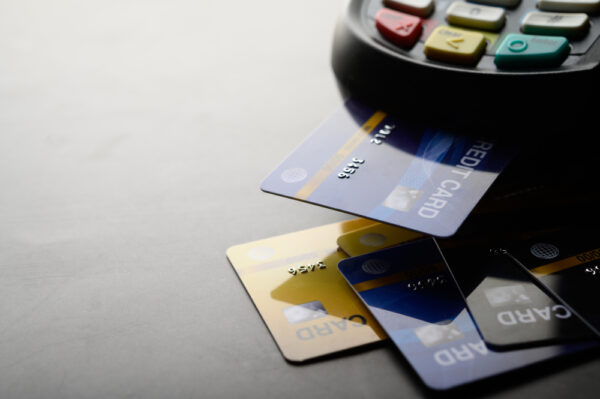
Having too many credit cards means that you have multiple credit limits at your disposal. But this is a huge responsibility on your end, especially if all your credit cards are active at one single time. So if you think you can’t handle multiple credit cards, use just one card. Or better yet, just keep a card or two. Multiple active accounts will only tempt you to spend beyond your means.[1]
❌ Don’t Take a Cash Advance When It’s Not Necessary
Through a cash advance, you can withdraw money from the ATM using your credit card. But remind yourself that the withdrawn money is not yours! It’s actually part of your credit line, which means the bank is lending that amount to you.
A cash advance is supposed to be used for emergency purposes, so as much as possible, you must never use it for other expenditures. Banks and credit card companies often remind credit card users that cash advances incur high-interest charges and upfront fees.
❌ Don’t Be Attracted to High Credit Limit Offers
Credit card companies won’t stop promoting attractive offers, such as high credit limits and exclusive perks. Even if you’re suffering from bad credit or you’re dealing with existing debt, you’ll still be bombarded with these enticing packages. If you receive a seemingly exclusive offer in the mail, ask yourself this: “Do I really need this right now?”
❌ Don’t Use Your Credit Card When You’re Emotional

Retail therapy is one way of making oneself feel better. And it’s become much easier with the help of credit cards. But remind yourself that shopping or spending is just a short-term cure for your emotional woes.
On the other hand, don’t use your credit card if you’re too happy or excited about a prospective big-ticket purchase. Give yourself some time before you spend; waiting things out within a day or so will help you determine if you really need that new smartphone or flatscreen TV.
❌ Don’t Spend Just for Rewards
In case you don’t realize yet, rewards just look attractive on paper. The truth is, they’re never free! You have to spend money before you get them. So, if your only motivation for using your credit card is to get rewards, then you’re using it wrong. In the end, the amount of your debt will outweigh the value of your rewards.
❌ Don’t Use Your Credit Card If the POS Looks Suspicious
Fraudsters and thieves can steal credit card data through skimming. If you think that an ATM or a credit card POS looks suspicious, then don’t use your card with it.
In case a fraudulent transaction happens using your credit card, know that it is never your fault. However, the investigation process that comes after it may take a lot of your time. It may even stress you out.
❌ Don’t Share Your Credit Card Information
Keep your credit card details private even to your close family and friends, especially your account number, card expiration date, and security code. Never share them with anyone asking for your data online or over the phone. Also, don't reply to or click on a link in a suspicious email.
❌ Don’t Forget to Settle Your Credit Card Debt Before Applying for Any Loan
Unsettled credit card balances may affect the approval and interest rates of certain loans, as they have an impact on your credit score. Loan companies need to make sure that you can pay back, which is determined by your credit score.
So, if you’re applying for a home loan or car loan, deal with your credit card debts first for a chance to get a low-interest offer.
❌ Don’t Accept a Credit Line That Will be Difficult to Manage
In other words, don’t bite off more than you can chew. If you’re struggling with the existing bills right now, likely, you can never afford a high credit line. If you insist on getting it despite your situation, you’re just putting yourself in financial quicksand.
And even if you’re offered a high credit line due to your responsible payment, ask yourself twice if you need it. Assessing your repayment capacity and present needs carefully will help you arrive at a sensible decision.
Final Thoughts
Owning a credit card empowers you as a consumer. It makes both in-person and online transactions not only convenient but also rewarding. However, a credit card doesn’t make you rich or financially powerful. Keep in mind that each swipe is just a loan that you’re supposed to pay back.
These credit card dos and don’ts are essentially anchored to these two tenets: first, live below your means and second, spend wisely.

Sources:
- [1] How to Live Below Your Means Without Feeling Deprived
- Photos from Freepik







